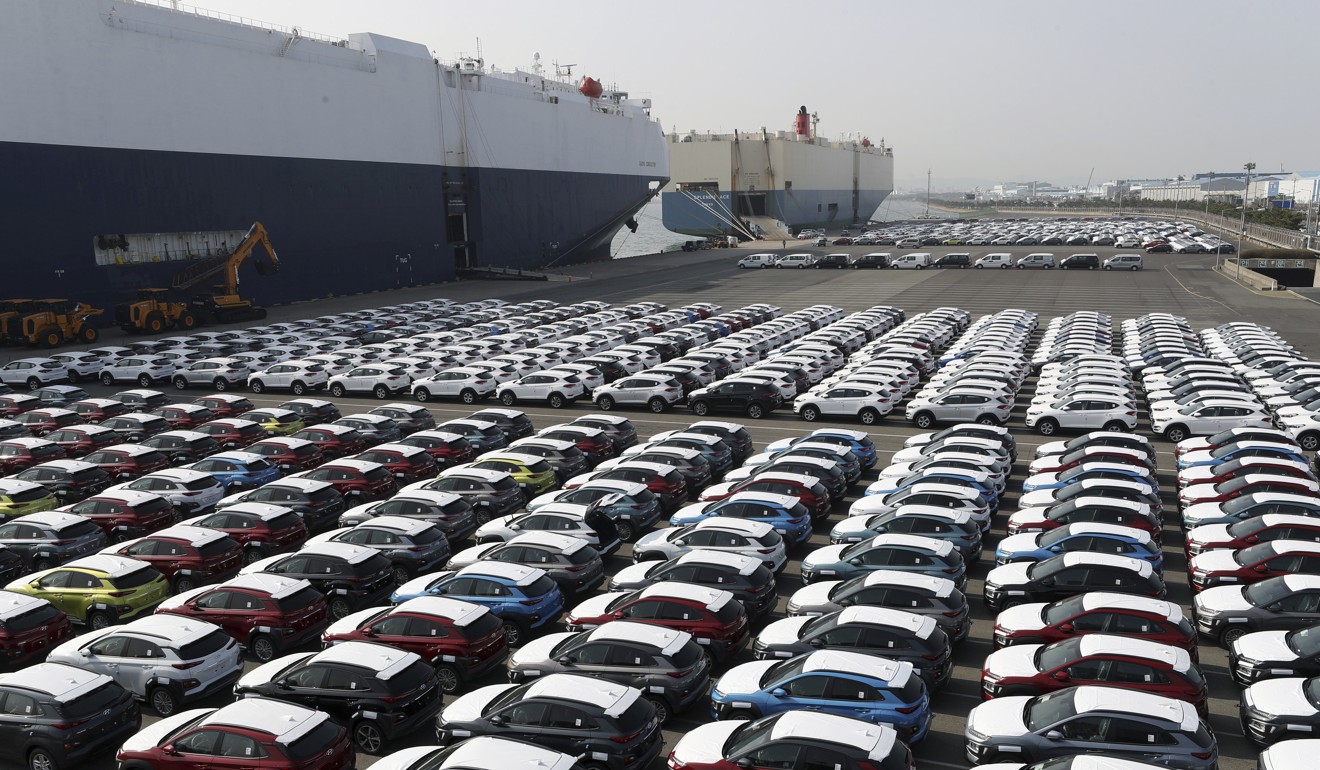
Donald Trump closes his first trade deal … ‘horrible’ South Korea agreement renegotiated after US president threatened to kill it
South Korea escapes the new 25 per cent tariff on imported steel - but must accept quotas on steel shipments to the United States
The United States and South Korea have reached an agreement in principle to amend a decade-old free-trade pact that President Donald Trump used to call “horrible” and a “disaster” - his first such deal and a victory, albeit a modest one, for his toughened approach to America’s economic partners.
Under the deal, South Korea agreed to limit its steel exports to the US and made concessions on auto imports.
In return, the US agreed to exempt South Korea from the 25 per cent tariff on steel that Trump announced this month.
The deal removes a major economic irritant as the allies prepare for high-stakes meetings on North Korea.
Trump and South Korean President Moon Jae-in are planning separate meetings with North Korea’s Kim Jong-un in the coming weeks.
Kim made a surprise visit to China this week and met with President Xi Jinping. China’s official news agency said on Thursday that Kim would be willing to give up his nuclear weapons and hold a summit with the US.
Relations between the US and South Korea have been strained at several points in the last year as Trump has railed against an US$18 billion trade deficit and denounced the US-Korea Free Trade Agreement, known as Korus.
Trump has called Korus a “horrible” agreement that “destroyed” US industry.

A year ago, he threatened to terminate the whole agreement, which was negotiated under President George W. Bush in 2007 but not ratified until five years later under President Barack Obama.
The new amendments to the trade deal will mark modest concessions by a trading partner that is a relatively small player behind the European Union, China and Canada.
The amendments do not directly address some major trade issues between the two countries, including agriculture.
But Trump administration officials boasted of it as a major victory, one that “validates President Trump’s visionary approach”, as a senior administration official told reporters Tuesday.
The agreement is an example of “the president fulfilling promises he made during the campaign,” said one senior adviser, adding that it amounts to economic “success across the board.”
Earlier, a statement from the Blue House, the home of the South Korean president, called the deal a “win-win”, echoing a phrase used over the weekend by Treasury Secretary Steven Mnuchin.
Administration officials specifically predicted that the agreement would increase the number of American automobiles and auto parts sold in South Korea.
The trade deficit in autos accounts for the lion’s share of the overall deficit with South Korea.
In addition to the agreement on autos, the South Korean trade ministry announced Monday that it would accept a new quota on steel shipped to the US that equalled about 70 per cent of its annual average over the last three years.
The quota, the administration officials said, was a key part of the agreement to exempt South Korea from the steel tariff. It’s designed to eliminate the problem of “transshipment”: South Korean companies buying steel from elsewhere, especially China, and sending it to the US.
South Korea is the third-largest exporter of steel to the US.
Trump bolstered his threat to upend trade deals early on by withdrawing the US from the Trans-Pacific Partnership that Obama negotiated with 11 Asian and Latin American nations. Trump said he would turn his attention to crafting bilateral deals.
As part of those negotiations, he has used the steel and aluminium tariffs, which he announced with considerable fanfare in early March, as bargaining chips.
He early on said Canada and Mexico would be exempt while the US negotiates with them to revise the North American Free Trade Agreement.
More recently, administration officials have said that in addition to those two countries and South Korea, they would also exempt the members of the European Union, Argentina, Australia and Brazil. What concessions, if any, those countries will make in exchange remains unclear.
The result has been to leave well over half of US imports of both steel and aluminium clear of the new tariffs. Administration officials said South Korea would be exempt from the steel tariff, but not the new levy on aluminium. South Korea, however, is not a major exporter of aluminium to the US.
Tribune News Service, Bloomberg, Associated Press
